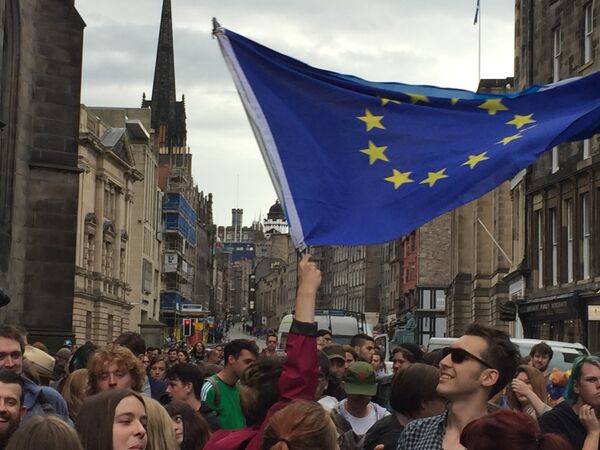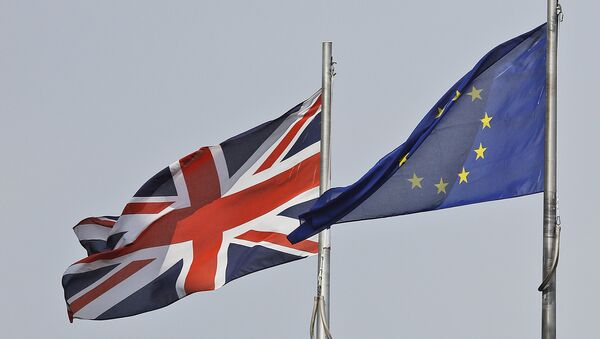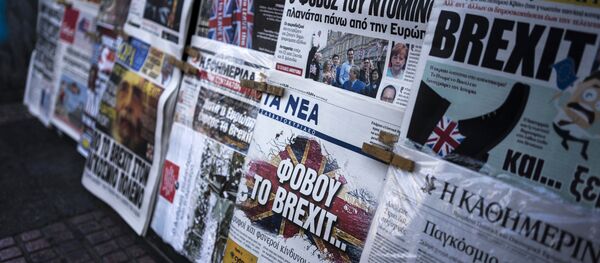Both Scotland and Northern Ireland voted to remain in the European Union, in the referendum on British membership of the EU, June 23, putting both countries at odds with England and Wales, both of which voted out. This leaves the United Kingdom in an immensely difficult position negotiating a new deal with the EU.

She told her party conference: "Make no mistake, the threat to our economy is not just the prospect of losing our place in the single market — disastrous though that would be. So, today I can announce a four-point plan to boost trade and exports, by taking Scotland's message, directly and in our own voice, to the very heart of Europe.
"Firstly, we will establish a new Board of Trade in the Scottish Government. Secondly, we will set up a new trade envoy scheme. It will ask prominent Scots to help us boost our export effort. Thirdly, we will establish permanent trade representation in Berlin — adding to our Investment hubs in Dublin, London and Brussels. And, fourthly, we will more than double the number of Scottish Development International staff working across Europe."
Read @NicolaSturgeon's speech to #SNP16 in full here. https://t.co/oCspOq7grQ pic.twitter.com/xHXBp8MJnh
— The SNP (@theSNP) October 15, 2016
Her remarks come as Northern Ireland — which is heavily dependent on EU aid programs — prepared to open direct negotiations with Brussels to create an associated membership for the province, which borders EU member Ireland to the south.
'Disaster'
Northern Ireland's Deputy First Minister and Sinn Fein party lead Martin McGuinness told the Guardian newspaper:
"As things sit at the moment we are going to suffer big time. [UK Prime Minister] Theresa May says 'Brexit means Brexit', but so far as we are concerned Brexit means disaster for the people of Ireland.There is a large amount of discontent, including within the unionist community, about how this Tory-led Westminster administration is being so cavalier in disregarding the impact of what they are planning."
Parliment Buildings, Stormont tonight.Pic by @paulmoane #belfast @newslineweather @StormHour @ThePhotoHour @PictureIreland #NorthernIreland pic.twitter.com/vtHNCyX3Sl
— Paul Moane (@paulmoane) October 11, 2016
The positions Northern Ireland and Scotland are taking put Belfast and Edinburgh on a collision course with London, which has yet to finalize its position before triggering article 50 of the Lisbon Treaty, which launches formal negotiations over Brexit.
However, there are also splits within Theresa May's own cabinet on the vexed question of immigration controls, which dominated the pre-referendum agenda, with many EU critics blaming EU migrant workers for stealing British jobs from UK nationals.
Home Secretary Amber Rudd made clear that — post-Brexit — there would be free movement for EU students and tourists, but that EU workers would be limited according to market sector job needs. This was immediately lambasted by Chancellor Philip Hammond, who said that limiting EU migrant workers would be disaster for the UK economy.
With Scotland and Northern Ireland threatening to go it alone in Europe and the cabinet split over immigration controls, the road to Brexit is looking increasingly perilous.





